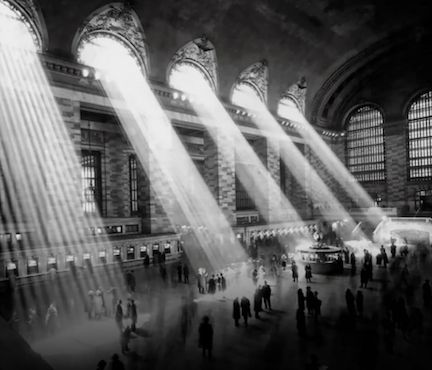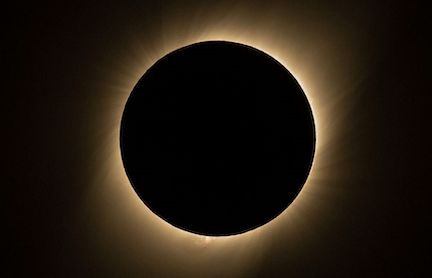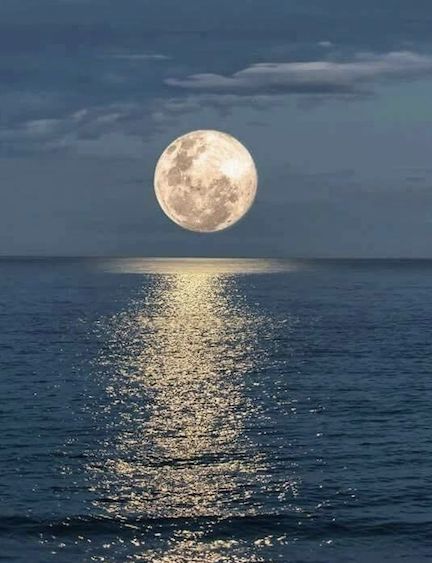Don't Let Progress Block the Sonlight
Reminicing about the glory days of Grand Central Staion, one Facebook commentor posted:
It’s one of the most iconic images in American history: sunlight streaming through the towering arched windows of Grand Central Terminal, casting dramatic beams of light across the main concourse. Captured in 1929, this stunning visual has enchanted viewers for generations. But what many don’t realize is that this natural light display is nearly impossible to replicate today, and it’s all because of New York City’s ever-rising skyline.

He goes on to suggest that this phenomenon is not unique to Grand Central. The beauty of many such grand archetectural wonders are now obscured by the shadows of a growing metropolis. "Known as urban canyons," he writes, "these environments can significantly alter how sunlight reaches street level, affecting everything from mood to vegetation to historical preservation."
He concludes:
In the case of Grand Central, the change is especially poignant. Once bathed in sunlight, the station now depends primarily on artificial lighting to maintain its grandeur. While still breathtaking in its architecture and cultural significance, it no longer offers that same celestial light show captured so beautifully nearly a century ago.
This shift is a powerful reminder of how cities evolve, and how even something as intangible as sunlight can be lost in the pursuit of progress.
Progress, in and of itself is a great thing. Progress brings change. It brings growth. Yet progress can sometimes cloud the past, dimming its impact, and dulling its effect.
In terms of our faith, Christianity itself stands in contant jeopardy of progressing, evolving beyond its orthodoxy — the basic, most essential tennets of the faith. In our striving to be culurally relevant, we run the risk of losing sight of our foundational truths.
When cultural trends deeply impact or infiltrate the Church, they can stand to create vast, figurative urban canyans which may potentioally alter the way genuine Sonlight reaches the figurative street level, "affecting everything from mood to vegetation to historical preservation."
We must therefore be cautous not to let progress (or progressivism) cloud the very Sonlight that defines us.
Again, progress in and of itself is not a bad thing. But as we grow and build on that progress, we have to be careful to not let it overshadow the foundation.
"For no one can lay a foundation other than that which is laid, which is Jesus Christ" (1 Corinthains 3:11, ESV).
"The light shines in the darkness, and the darkness has not overcome it" (John 1:5, ESV).
"But you are a chosen race, a royal priesthood, a holy nation, a people for his own possession, that you may proclaim the excellencies of him who called you out of darkness into his marvelous light" (1 Peter 2:9, ESV).
What's Blocking the SON in Your Life?
Youth Pastor, Chet Skatington, had this to say about the monumental Solar Eclipse of 4/8/24:
We're entering a season of total solar eclipse — a time when the moon gets in the way of the sun and blocks its warm, healing rays from hitting the Earth. During this short celestial event, we will get a small taste of what life would be like if the Sun didn't exist.
It would be dark. Just like Findlay Ohio during the moment of eclipse totality.

He continues:
But have you ever thought about what life would be like if the SON didn't exist?
I daresay it would be even darker.
We may not see the Sun being blocked by the moon very often, but how many times do we allow sin to block the healing warmth of the SON from our hearts?
He concluded:
... [F]or many of us, our hearts have been living under a total eclipse for far too long. A spiritual total eclipse. Of the heart. Too often, we allow sins like lust, drugs, or skipping out on our [bible studies/fellowship times] to block the influence of the Son of God. That's wrong, fam.
During this year's eclipse, let us reflect on the things in our lives that are blocking out the Son. Let us remove those sins that so easily beset us and allow his warmth to shine on our hearts once again. ...
“I am the light of the world. Whoever follows me will not walk in darkness, but will have the light of life” (John 8:15, ESV).
"The light shines in the darkness, and the darkness has not overcome it" (John 1:5, ESV).
"For at one time you were darkness, but now you are light in the Lord. Walk as children of light (Ephesians 5:8).
Reflecting the Light - It All Comes Down to Proximity
The Moon does not make its own light. Moonlight is actually reflected sunlight. We always see the same face of the Moon from Earth - the “lunar nearside.” Each month, as day and night sweep across the lunar nearside, the sunlit part of our view takes on a series of familiar shapes: crescent, half-moon, full, and more.

According to NASA:
Overall, only about one-tenth of the sunlight that hits the Moon is reflected back into space. This ration of reflected light is called albedo. For comparison, our watery planet bounces about three-tenths of incoming rays back into space. Venus has an even higher albedo than Earth, reflecting half of the sunlight that reaches it. Yet, the Moon outshines Venus in our sky.
Why? It is all comes down to proximity. The Moon is far closer to us than Venus so the Moonlight - the reflection of the Sun’s light - appears brilliant to us.
John the Witness, via his devotion to Jesus, was able to show the way to the Light because of his proximity both to the Light and to those to whom he witnessed. Our proximity to the Light and others affords us the same opportunity to likewise direct others to Light of Jesus.
Jesus is the Light (uppercase "L"). Jesus' disciples (us!) are the light (lowercase "l") called to reflect the Son. As we draw closer to Him, and then and draw closer to those to whom we would share that Light, we are able to do just that. His Light will shine brilliantly to all those who are in darkness.
It all comes down to proximity.
"He [John] was not that Light, but was sent to bear witness of that Light" (John 1:8).